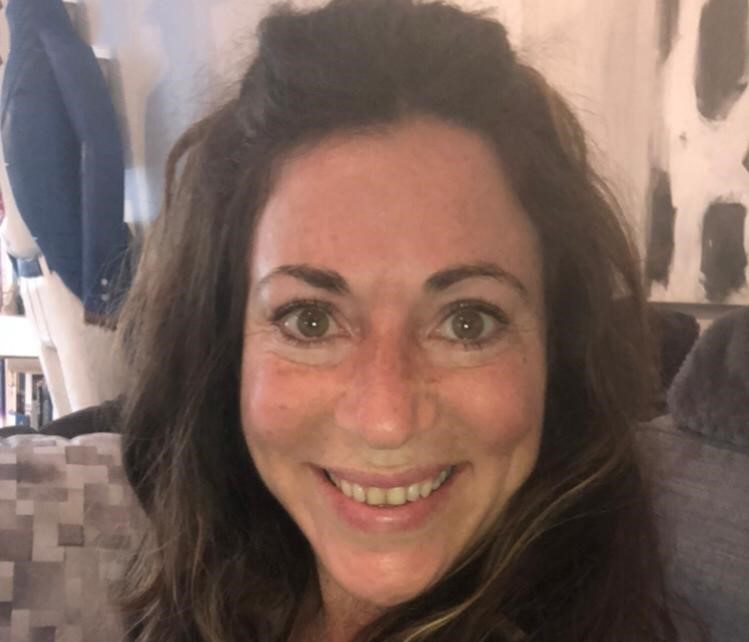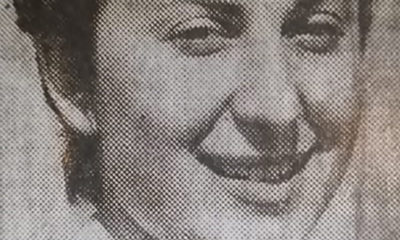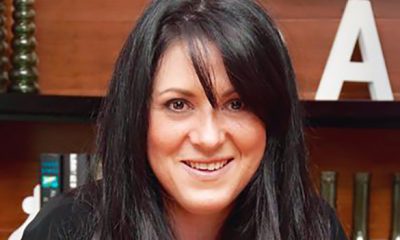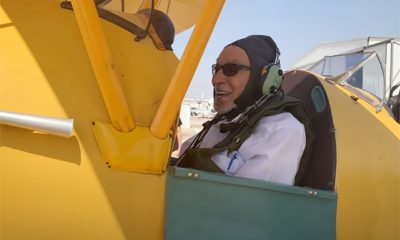
Featured Item

Helping one man make the long journey home
Jews instinctively know what it’s like to be a wandering people, longing for home, and travel agent Vanessa Frankal recognised this when she encountered Gabriel Mambe Kasonga living on the streets of Cape Town. What started out as raising funds and rallying others to help him eventually led her to help him fulfil his dream of returning to the Democratic Republic of the Congo (DRC) two weeks ago.
“I met Gabriel on my daily morning walk – his gentle demeanour stuck out for me, as did the sweet way he would always smile and say, ‘G-d bless you’ in a French accent every time I gave him a little money or food,” says Frankal.
She has faced tough times herself thanks to COVID-19’s impact on the travel industry, but she still wanted to help Kasonga get off the streets.
He told Frankal that when war broke out in the DRC, he travelled as an asylum seeker from Lubumbashi to Zimbabwe and eventually to South Africa in 2008. “Unfortunately, he landed in the thick of xenophobia in South Africa,” she says.
“Although he was a third-year medical student back in the DRC, in South Africa he worked in security for years. In 2015 he got sick, took off too long from his job, and ended up losing it. As a result he couldn’t afford his rent. After struggling to extend his asylum papers, and having no income, he lost his rented room and found himself on the street.”
Kasonga last had contact with his family in 2015, and street living became his way of life. “He worked for R20 a day helping vendors push their carts to and from work – this after earning R5 000 a month in security. At night he would stay safe by standing up against a wall outside the Caledon Police Station, and then sit on a bench all day to rest his legs.”
While extremely humble, Frankal says she has assisted other refugees before. “In 2008 when the xenophobia crisis hit, I was absolute devastated by the hatred shown to foreigners. When I heard they were all sleeping outside Caledon Police Station, I got in my car at 20:00 to get donations of food. Checkers filled my car to the brim with cakes, food, and anything else expiring over the next few days. I drove to the station and handed it all out.
“As I was leaving, I saw a woman standing on a street corner looking lost. I said I’d take her to a church to sleep. It turned out she had a husband, so we got him in the car. They ended up staying in my flat for weeks. He has since left her, but she and I are great friends and I help her and her now nine-year-old daughter. Ironically, it was her Congolese tenant who located Gabriel’s family in the DRC.”
Frankal was just planning to “feed Gabriel and find him shelter, but it kind of developed a life of its own. I’d lost all my income since March and by July, was aware that I wasn’t in a position to help financially as I couldn’t even afford my bond. So I asked for help on Facebook and in my complex.
“People I had never met before found the story on Facebook and offered to help, giving shoes and clothes. Dana Lazerson fed him a vegetarian meal daily. Brittany Potgieter got him a colouring book, Koki pens, and underwear. Teresa Zive gave him food and toiletries, and Gabriel struggled with his sight so she paid for him to have an eye test and get new glasses from Leon Hattingh at Atlantic Vision Optometrists. He gave her a special price for the test and glasses. I got him into a soup kitchen night shelter called Youth Solutions – they were so kind to him. I also got him a MyCiTi card to give him a sense of dignity and belonging.
“When the soup kitchen shelter closed on 28 September, I knew we had to find a solution, as its night shelter let us down and said they no longer had a bed. I found accommodation for R163 a night, so I booked him in for five nights and he had his first hot shower in five years! When we met with a social worker and Teresa offered him a security job, we were surprised when he said, ‘I just want to go home.’ Then everything took an about-turn.”
She asked him why he wanted to go home. “He said, ‘My hands are empty after all these years, I have nothing’. He hasn’t seen his friends and family in 12 years! We found out that his mother has since passed away, as has his uncle, who was his primary caregiver. So I think this made him realise how life has passed him by, and I think he felt isolated, alone, and very lost in South Africa.”
Frankal and other supporters set up a crowdfund on BackaBuddy, raising R30 000 to sort out his travel documentation, get a COVID-19 test, his flights, and money to help him resettle in the DRC. “We will be staggering these funds so that he’s not taken for a ride or suffers any unforeseen financial losses,” she says.
Miraculously, making contact with his family happened quickly. “Annociata, my Burundi friend, rents her rooms out and her Congolese tenant contacted his wife in Lubumbashi to go looking for the family. Within 24 hours, we found his sister, Alpho, and his cousin, Keran. I booked him on Ethiopian Airlines from Johannesburg to Lubumbashi.”
As his documents had expired, the DRC embassy said it would give him an emergency travel document after 48 hours of appearing in person. “Brittany told us that her father in Pretoria would put Gabriel up and drive him around for three days while he got his COVID-19 test, documents, and so on. They took him to a church meeting, sightseeing, and for dinner, and they got friends to donate dollars to him. I’ve never seen such kindness from pure strangers. They gave him suitcases, gifts for his family, and fed him so well.”
When Kasonga finally got on that plane, “I sobbed all the way home,” says Frankal. “I became quite attached to Gabriel. He’s a wise, humble, gentle soul.”
He is now safely in Lubumbashi, staying with his family. “He has $150 [R2 309] initially, and I’ll stagger his funds. I pray he goes back to finish his degree as he’d love to be an optometrist.”
She often thinks of the Jewish teaching, “To save one life is to save the entire world”, and says, “My late parents brought me up with kindness in my heart, and that kind of yiddishkeit. My dad always teased me and called me ‘Mother Teresa’ my whole life.”
There are hundreds of people on our streets, and many don’t have sympathy for them, but Frankal says, “Everyone has a story. Gabriel had a full life before he was homeless. When we fetched his possessions, I saw bags of clothes, shoes, an alarm clock, a Tintin book, a dictionary, his payslips, and bank statements. He had dreams of a better future.
“I would love to help every lost and needy soul, but it does become quite emotionally taxing. I will always give on a daily basis, as I believe there’s more than enough to go around. We all just need to share a little bit of what we have. Give a little, and you get a lot back.”










